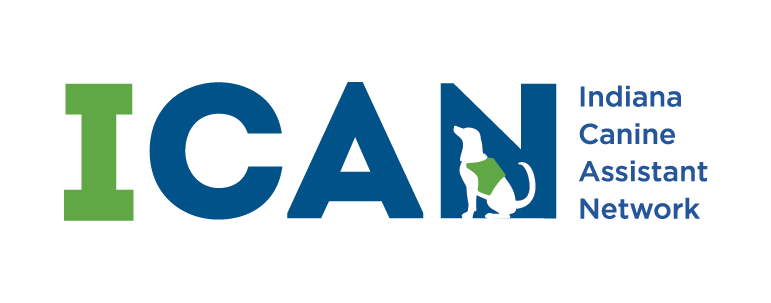7 Questions to Ask When Applying for a Service Dog
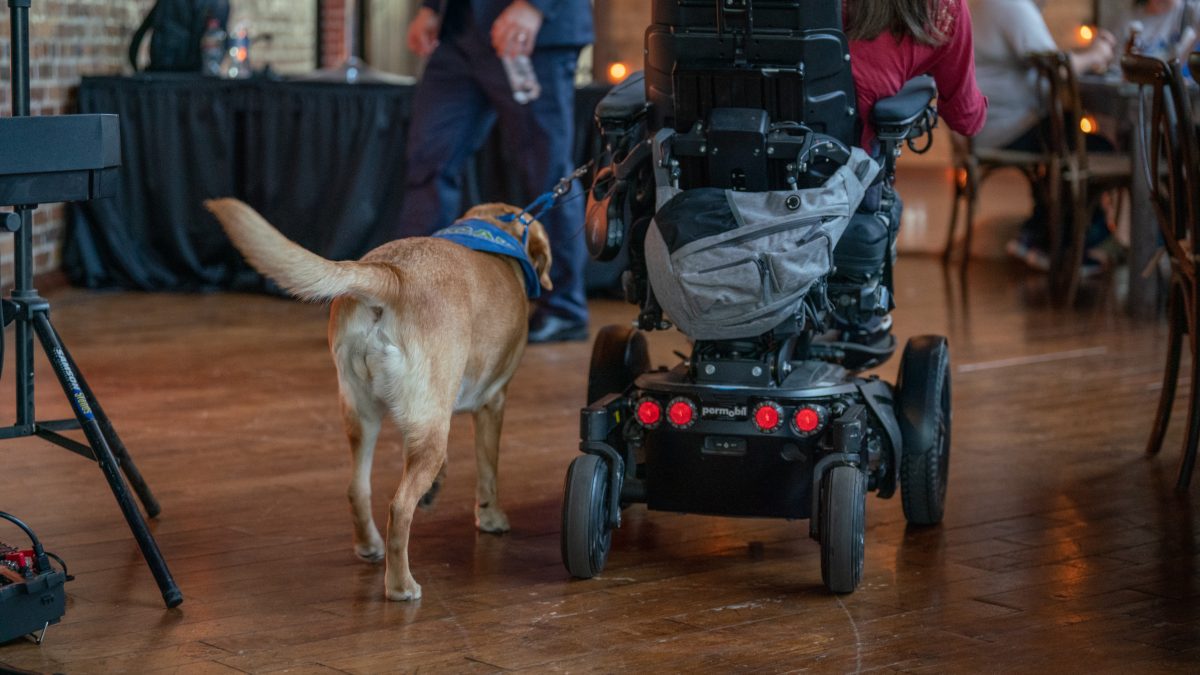
Being paired with a service dog is a huge decision that can change your life forever. By reviewing these questions to ask when applying for a service dog, you can be sure that you know the most important things to consider!
1. How much does a service dog cost?
ICAN requires a non-refundable application fee of $75 and a $2,500 placement fee once the service dog is matched with the client. In addition to this, ICAN also recommends pet insurance for service dogs.
Once the service dog is placed with a client, ICAN requires that clients can provide for the dog from that point forward. The average annual cost to own a dog runs from $1,000 to $1,200 and includes medicine, vet visits, healthy food, toys, bedding, and so on.
While ICAN doesn’t currently offer a scholarship program to offset the cost of a service dog, applicants can begin making payments in advance of receiving a dog so they can reduce the final amount due at the time of placement.
2. What are the training standards for your service dogs?
When applying for a service dog through any organization, it is important to ask about the training protocols and standards that are followed to be sure you are getting the best possible service dog for your money and needs.
ICAN is the only ADI-accredited service dog training program in Indiana, which means that we follow strict standards for the health and positive reinforcement training of our dogs. As an ADI-accredited organization, ICAN is also a member of the ABC Breeding Cooperative. This ensures that we work closely with other accredited organizations for a diverse gene pool and breeding of healthy dogs.
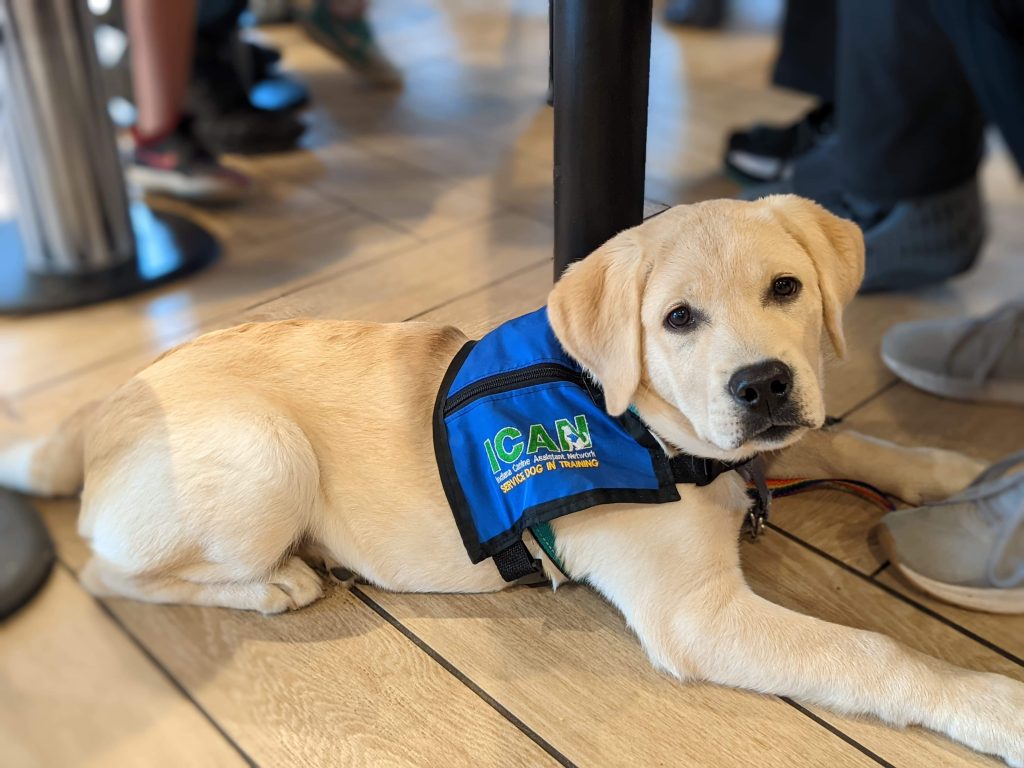
3. Do service dogs require ongoing training?
An ICAN service dog spends approximately two years in the ICAN ADI-accredited service dog training program learning highly specialized skills and house manners in order to be as successful as possible once paired with a client.
However, service dogs are still dogs—not robots. This means that despite all of their training, a service dog may slip up every once in a while! For example, mixing up cues or testing boundaries are common things that even a graduated service dog may need training reminders on.
When applying for a service dog, the client should be aware that service dogs require ongoing training in order to keep their skills and manners fresh and ready to use in all settings. This could mean that the client trains new behaviors or reinforces previously learned behaviors.
4. Will I be required to carry identification or proof for my service dog?
The idea that service dogs must be licensed or accredited is actually a common misconception. Under the Americans with Disabilities Act (ADA), businesses are not legally allowed to require proof or documentation that a dog is trained as a service animal in order to grant entry.
There are many online businesses that promote “service dog” accreditation services such as licenses, vests, or identification cards for people to purchase for their dogs, but this is illegal under the ADA.
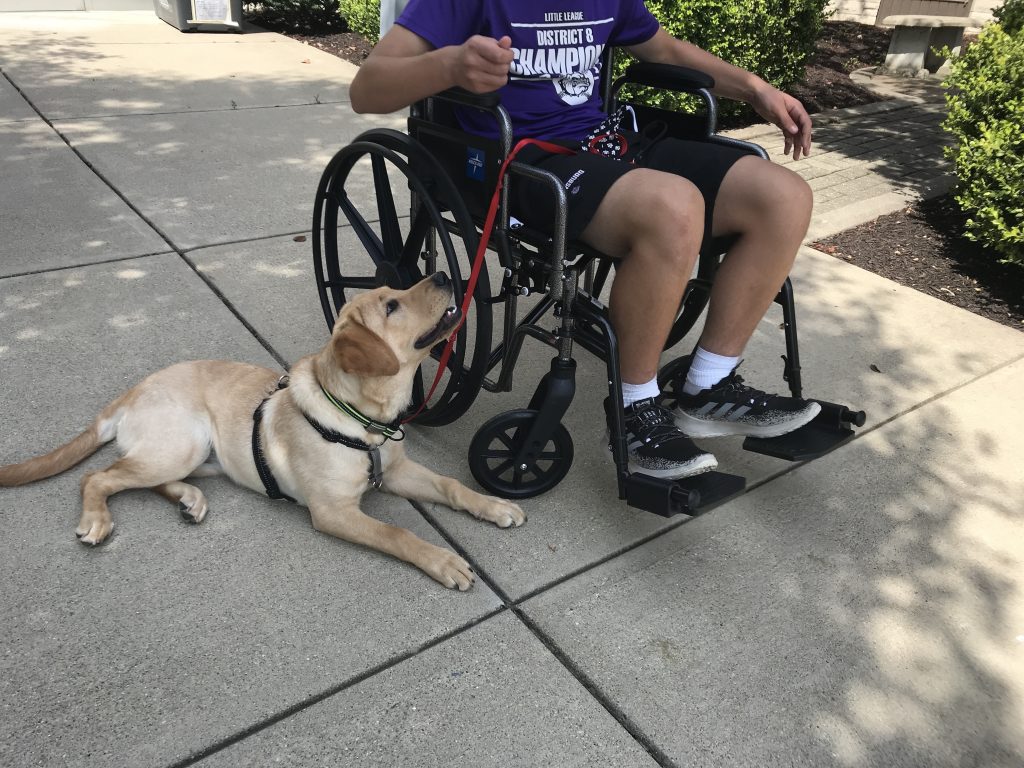
5. How will my life be different in public with a service dog?
Having a service dog in public is definitely a new experience that requires a big adjustment! No matter how much the public is educated on service dog etiquette, bringing a dog into a public establishment may result in people asking questions, staring, or making comments.
In addition to this, outings in public may take quite a bit longer than normal with a service dog. Rather than preparing only yourself for a quick public outing, life with a service dog will require that the dog is dressed in any necessary gear, had a chance to use the bathroom, and loaded into the car before departing.
6. How big is the responsibility of owning a service dog?
Being partnered with a service dog is a life changing experience that provides a client with new perspectives and independence, but it is still important to remember that owning a service dog is a big responsibility.
Like any dog, a service dog must be exercised regularly in order to maintain a healthy weight—and they must also be given proper mental stimulation. This, along with time and the financial responsibilities, requires a serious commitment.
If you’re willing and able to work with your dog every day, provide vet care and healthy food, and unconditionally love your dog—an ICAN service dog may be right for you!
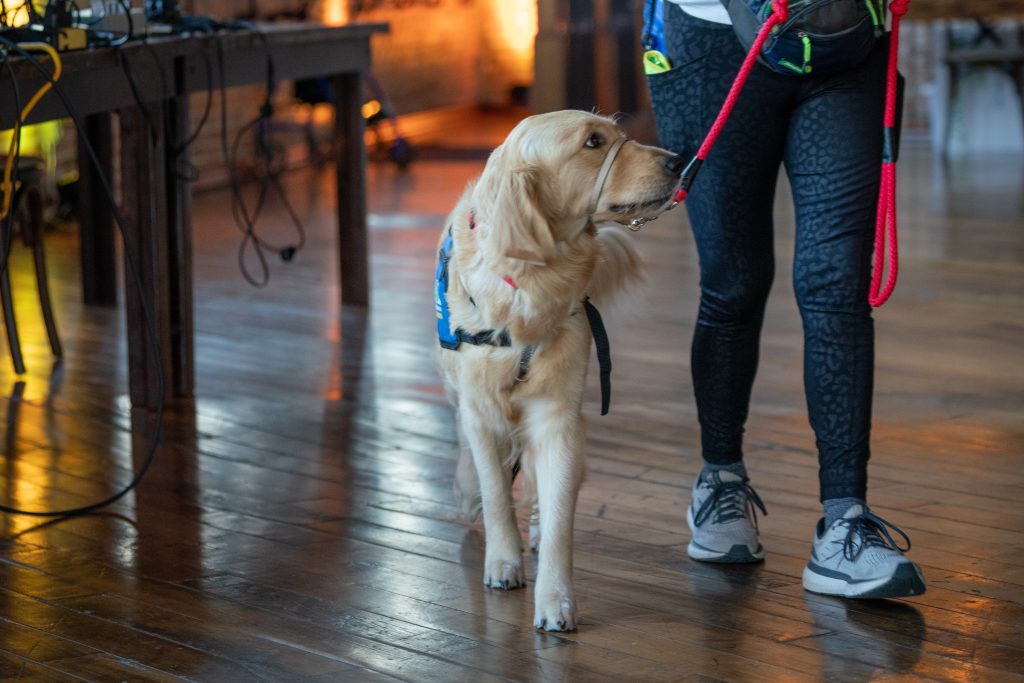
7. Have other dogs from this program been trained to assist with my same disability?
ICAN service dogs learn specific skills to best assist their individual client during day-to-day activities. While each dog aids their client in different and unique ways, it may still be helpful to ask if previous dogs in the program have been trained for your specific disability.
This question is useful in understanding how a service dog may be able to help you specifically and the ways that other clients have benefited from their service dog.
Adding a service dog to your life can be a wonderful experience that helps you break barriers and overcome challenges, but it is also a serious commitment. By using these questions to ask when applying for a service dog, you can be sure that you are prepared to embark on your journey toward a life changing partnership!
Have more questions? Check out our FAQ page or contact us today!
ICAN trains and places assistance dogs with individuals in Indiana who have disabilities and provides foundational life skills to inmates through their experience as trainers. To learn more, visit our website and follow us on Facebook, Instagram, Twitter, and YouTube.
